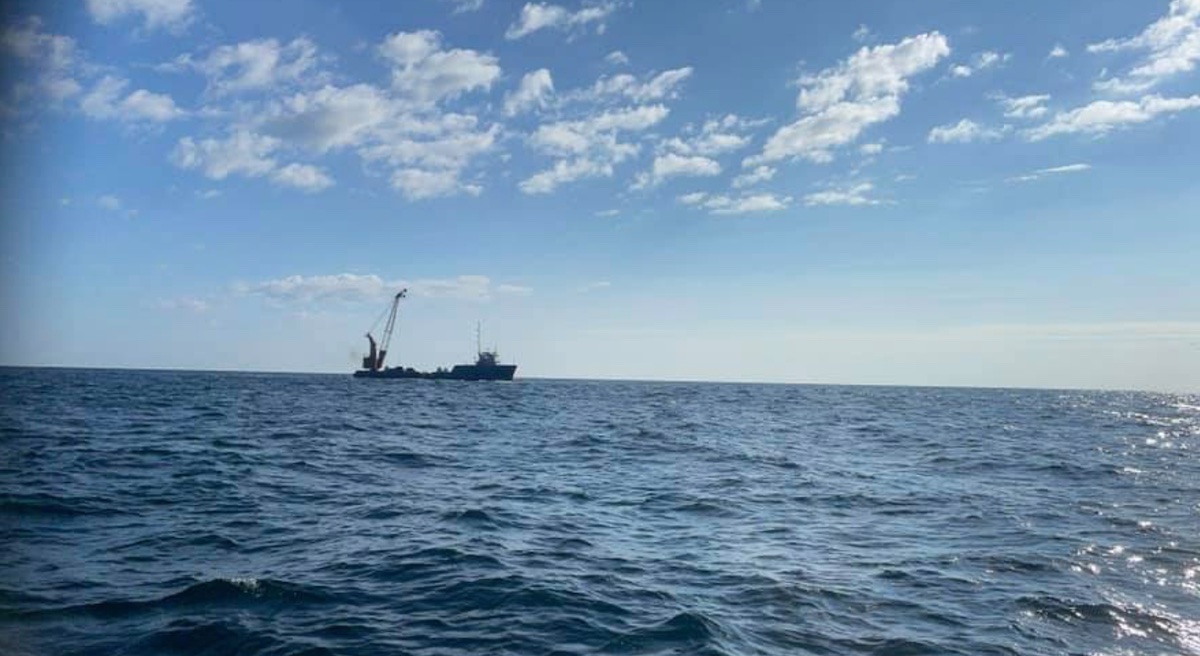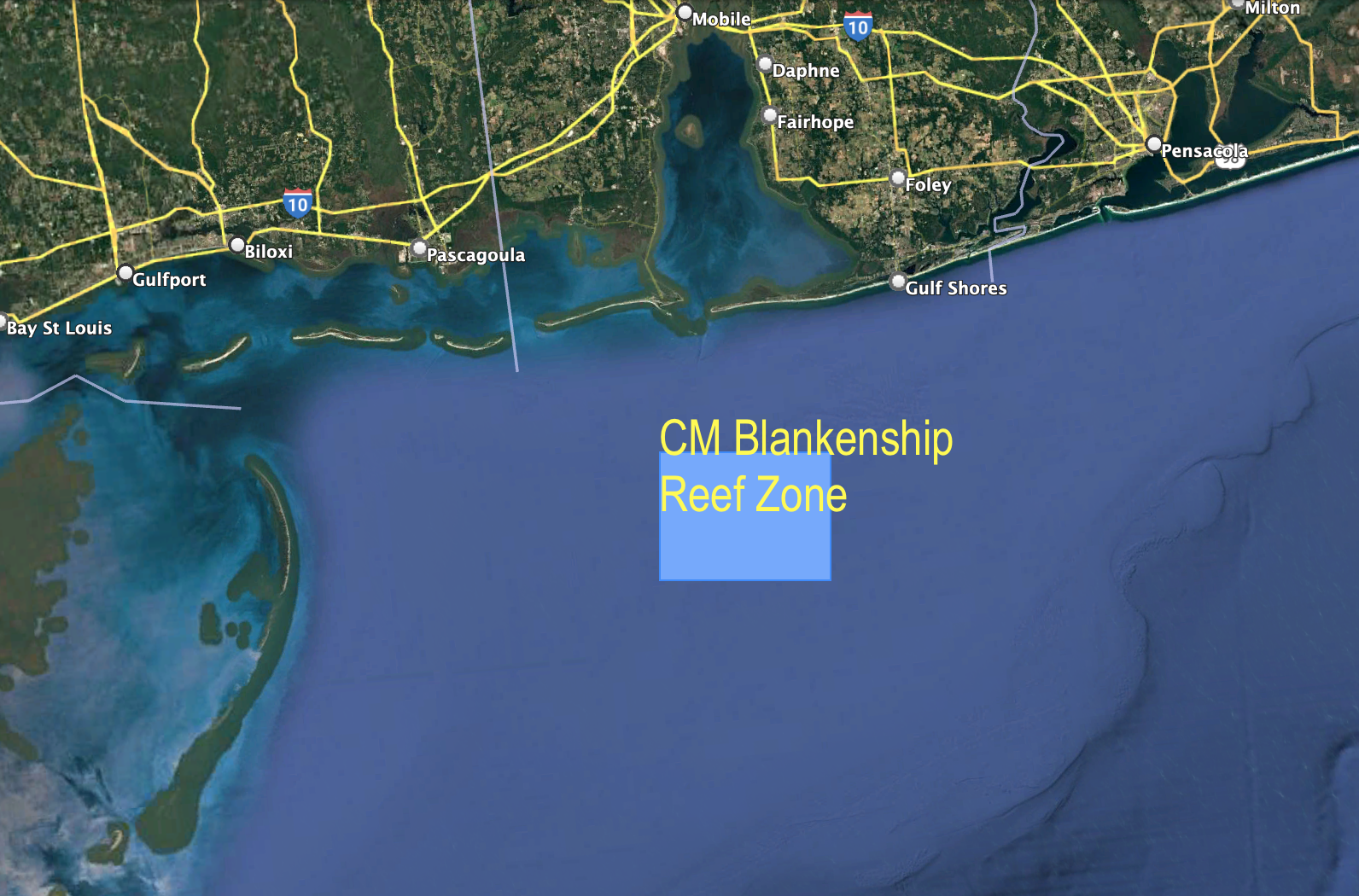Pick-up Stick Style Artificial Reef Built off of Alabama Coast
Keith Lusher 11.06.24

Artificial reefs are nothing new to the Gulf of Mexico. From abandoned oil rigs to antique street cars, the Gulf is peppered with man-made structures that serves as a refuge for baitfish and feeding sportfish.
But have you ever heard of old telephone poles being used to form a reef? That’s what Alabama Power and the Alabama Department of Conservation and Natural Resources has done just in 90 feet of water off the Alabama coast.
The reef was an addition to the Christopher M. Blankenship Reef Zone, which spans 65 miles and is located between 10 and 20 miles off the coast.
The reef is the fourth one built by Alabama Power and consists of transmission poles and steel lattice from transmission towers.

Jason Carlee is Alabama Power’s Manager of Water Field Services in the Environmental Affairs Division. Carlee said the poles were deployed by the Reefmaker, which is a reef-building boat out of Orange Beach, AL. “The goal was to stack the poles in a crisscross pattern, kind of like Pick Up Sticks, to get some relief and not just lying flat on the bottom,” he said. There are also some transmission tower segments among the poles. There is a lot of surface area on those concrete poles for barnacles and other marine life to get that reef complex started.”
Craig Newton is MRD’s Artificial Reef Coordinator. Newton oversees Alabama’s Gulf reef zones that cover more than 1,200 square miles. “We developed a mutually beneficial partnership with Alabama Power, and they repurposed these concrete power poles and other materials to construct this additional reef in the Blankenship Reef Zone that significantly increased the diversity of habitat types that are available to the reef fish in that area,” Newton said. “The concrete poles provide a unique habitat that is different from the 25-foot-tall concrete pyramids in that there are more nooks and crannies for fish, crabs and invertebrates to seek refuge and inhabit. It’s an exceptionally diverse reef habitat in 90 feet of water.
Newton went on to say, “I’m not sure kids today would know what Pick Up Sticks are, but, if you can, picture a configuration that resembles Pick Up Sticks in the way these concrete poles were deployed. In addition to the power poles, sections of a transmission tower were deployed adjacent to and on top of the power poles. That provides higher vertical relief and also a significant number of small, interstitial spaces.”

Newton said the reef will be prime habitat for red snapper, Alabama’s signature reef species, as well as gray triggerfish and gray (mangrove) snapper.
The reef is expected to primarily produce gray snapper. Gray snapper prefer tight quarters, which the power pole configuration offers. In addition to gray snapper, the reef should be attractive to red snapper and triggerfish. A highly sought-after offshore sportfish off the coast of Alabama is the greater amberjack, however, the reef is a bit too shallow to be considered a prime amberjack reef. Newton holds out hope that the reef will produce amberjack when the right conditions present themselves.

